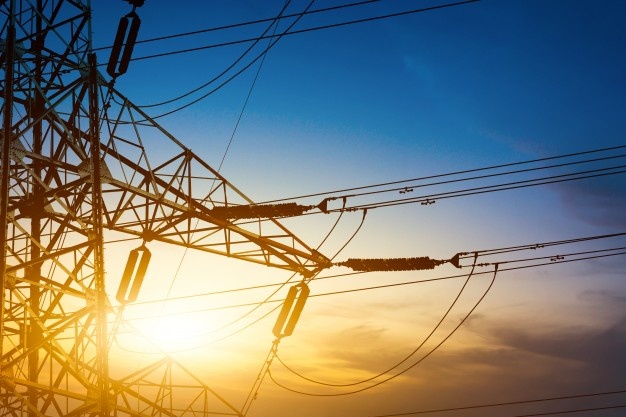On July 24, French super-major, Total signed a Gas Supply Agreement and Host Government Agreement with Benin and its state utility, the Société Béninoise d’Energie Electrique (SBEE). The agreement would see the development of a 0.5 mtpa Floating, Storage and Regasification Unit (FSRU), the first in West Africa.
According to reports, the liquefied natural gas (LNG) supplies sourced from Total’s global portfolio are set to start in 2021 and last for 15 years.
Prior to this development, Benin Republic, a country with a population of less than 12 million and a GDP of $10.35billion in 2018, is often overshadowed by its massive neighbour, Nigeria. But as African countries try to revitalise their energy sector, bring in private capital and develop gas-to-power, experts are now convinced that Benin look set for a positive reform in the sector, hence it has become a piece setter in the move to use LNG for the provision of clean energy.
Worthy of note is that before the signing of the agreement, the country embarked on a legislative reforms, thus setting a strong political agenda and indicating that the small West African nation is strengthening its place as the capital of the West African Power Pool (WAPP) and positioning itself as a big hub for gas and power in the sub-region.
Experts think this was no small move for a region that had repeatedly tried to develop its gas-to-power infrastructure but has remained faced with financing, infrastructure and regulatory challenges.
According to Power Africa, between Cote d’Ivoire, Ghana, Nigeria and Senegal, up to 7,750MW of gas-to-power facilities could be installed by 2030. In practice however, erratic supplies from the West Africa Gas Pipeline, lack of gas and transmission & distribution infrastructure, unattractive pricing structures and outdated master plans mean that such potential might remain under-exploited, the report noted.
In this context, the recent signing of agreements with Total brings hope to a region hungry for power. It is first the result of strong political will. Under the leadership of President Patrice Talon, Benin has been implementing a strong Government Action Plan (PAG) since 2016, which places the revitalisation of the country’s energy sector and private sector capital as a pillar of economic development.
The formula is working: Benin grew by almost 7 per cent last year and is expected to grow by 6.5 per cent this year (IMF), placing it in the top 15 of the world’s fastest growing economies. And political vision has led to a better ease of doing business. Benin has been revising its Electricity Code, and its Council of Ministers approved last month the new framework of intervention for the Independent Power Producers (IPPs), improving investment and operating conditions for private investors in the country’s power industry.
As a result, the agreement with Total would not only see the development of West Africa’s first FSRU, it is also reviving hopes of seeing clean LNG powering future homes and industries across the region. The new gas import project would indeed supply power plants in Benin, such as the new 127 MW power station at Maria Gléta, with regasification infrastructure developed and operated by Total.
Nigeria Losing Out?
Unfortunately, Nigeria which is said to have the largest gas reserves in Africa continue to struggle to convert the resources to energise the country’s economy.
According to the Nigerian National Petroleum Corporation (NNPC), Nigeria has around 202 trillion cubic feet (TCF) of proven gas reserves plus about 600 TCF unproven gas reserves, but only 25 per cent of this is said to be currently produced. Despite the said production level, the power sector continues to suffer from lack of adequate supply of gas due to a number of reasons.
The Place of Legislation
As rightly noted in the Benin experience, the appropriate legislation processed the investment by the private sector operator. This is where the Petroleum Industry Governance Bill (PIGB) passed by the 8th National Assembly but failed to get Mr. President’s assent comes to mind.
The PIGB is perceived in some quarters as an initiative that would not only help curb corruption in the petroleum industry, but as well serve as the defining guideline to participating in the sector.
In addition, the bill intends to reduce the minister’s power as some have been said to misuse the enormous power reposed on them in the current dispensation where the minister is said to be able to award oil exploration and crude oil shipment contracts to friends and cronies.
What exactly is the PIGB?
The PIGB was first proposed some 18 years ago by stakeholders in the oil and gas sector, as an answer to the massive corruption and theft that has confronted every administration since the 1960s.
On Thursday, May 25, 2017, the immediate past senate broke the jinx by passing the bill after a clause-by-clause consideration and amendment of the report.
Weeks later, the House of Representatives passed its own version.
On March 28, 2018, the PIGB was harmonised and passed by the senate and the house of representatives.
On July 3, 2018, the PIGB arrived Aso Rock for President Buhari’s assent.
The PIGB aims to achieve the following: Create efficient and effective governing institutions with clear and separate roles for the petroleum industry; Establish a framework for the creation of commercially oriented and profit driven petroleum entities to ensure value addition and internationalisation of the petroleum industry; Promote transparency and accountability in the administration of petroleum resources of Nigeria; and foster a conducive business environment for petroleum industry operations.
However after months of stay at the President’s office, the bill was rejected assent with explanations by the Senior Special Assistant to the President on National Assembly Matters (Senate), Sen. Ita Enang.
According to Senator Enang, President Mohammadu Buhari withheld his assent to the bill on what he described as constitutional and legal grounds.
Among other reasons, the presidency said it disagreed with the section of the bill that allows the proposed Nigerian Petroleum Regulatory Commission (NPRC) to retain as much as 10 per cent of the revenue generated, because this would unduly increase the funds accruing to the Commission to “the detriment of the revenue available to the federal, states, Federal capital Territory and local governments in the country.”
What the federal government is saying here is that it won’t sign a bill that guarantees 10 per cent to the regulatory commission because that would affect what is due to states in monthly allocations.
What the government failed to put into consideration is the negative impacts in terms of foreign investment flow into the country due to the absence of adequate legislation governing the industry.
So far, neighbouring countries like Ghana, Equatorial Guinea, and even Benin are already taking advantage of Nigeria’s negligence and failure to monster the political will to do the right thing at the right time. Instead of looking at the bigger picture the country continues to view issues from a myopic point. The truth is that the world will not wait for Nigeria. It’s time the country takes advantage of her position in the region before it’s too late.





